Who was Alan Turing?
World War 2 was one of the most horrific events in human history. The years of fighting saw death and destruction across the planet, and I hope we never have to witness another disaster like it. What if I told you that the war could have actually gone on for longer if it wasn't for the genius of one man - Alan Turing.
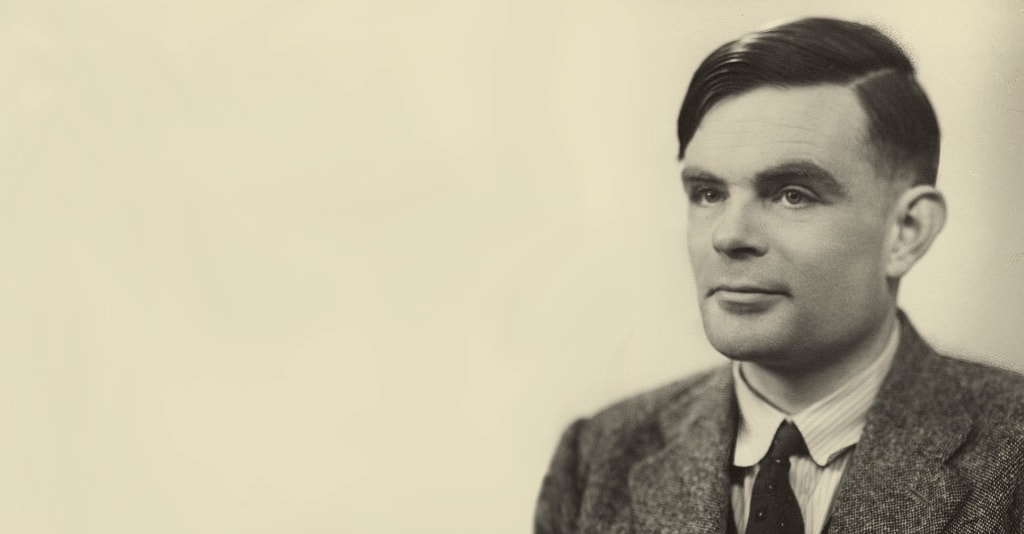
Alan Turing has only recently come to the surface of the mainstream; part due to The Imitation Game, a fantastic film on the topic of Bletchley Park and its success of breaking the German Enigma Machine, and partly due to the British government releasing horrific facts on how Turing was treated post-war as he was a gay man living in a homophobic society. As some of you may not have heard of the brilliance of Turing, first, I recommend watching The Imitation Game – it's brilliant. While you get your friend to find the movie online, here is an account of his brilliant work and some extra information that the film misses.
Alan Turing: Who Was He?
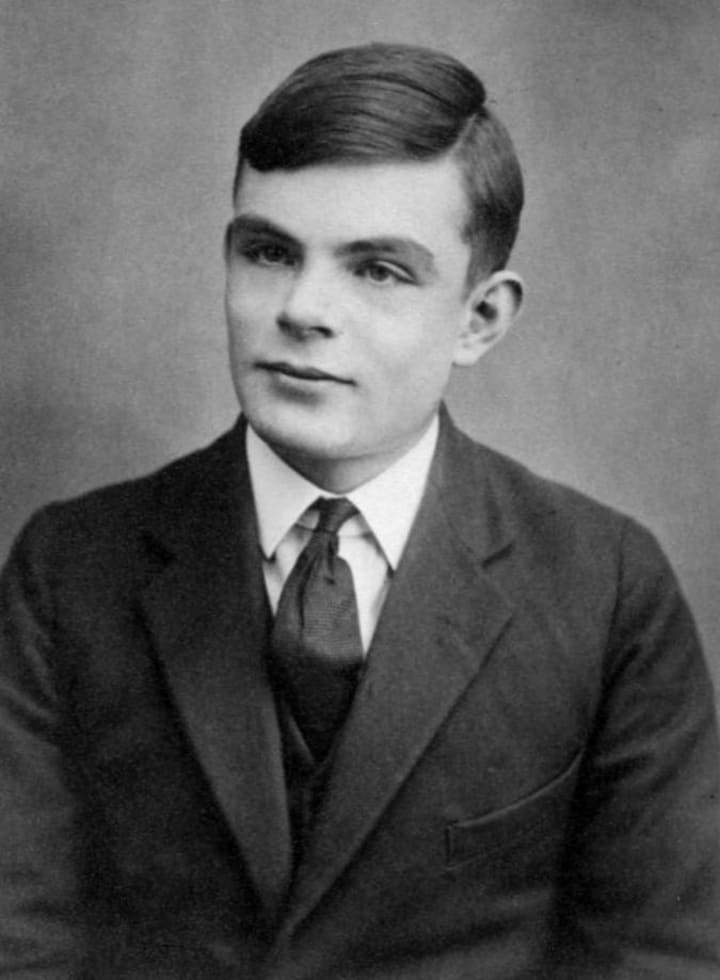
Alan Turing was a bright British mathematician who played a crucial role in deciphering Nazi cyphers during World War II. In his essential 1936 work, he demonstrated no universal algorithmic approach for establishing truth in mathematics and that mathematics would always contain undecidable propositions. His research in computer science and artificial intelligence is widely regarded as foundational.
Cryptoanalysis
Turing was a key figure in deciphering wartime codes, particularly German cyphers, during World War II. He worked at the GCCS wartime station Bletchley Park, where he produced five key advances in the science of cryptanalysis, including inventing the bombe, an electromechanical device used to aid in deciphering German Enigma encrypted messages. Turing's contributions to the process of cracking codes didn't end there. He also published two articles on mathematical approaches to codebreaking, which were so valuable to the Code and Cypher School (later known as the Government Communications Headquarters) that the GCHQ didn't give them to the National Archives of the United Kingdom until April 2012.
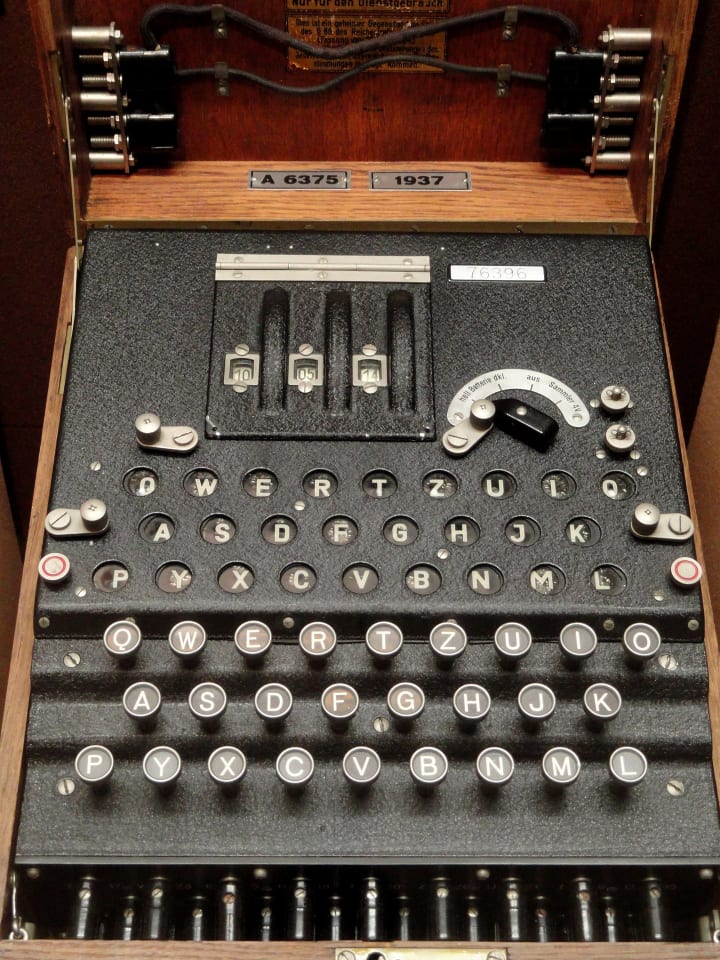
In the mid-1940s, Turing relocated to London and began working at the National Physical Laboratory. Turing spearheaded the design work for the Automatic Computing Engine and finally devised a pioneering blueprint for store-program computers while at the site, which was one of his most famous accomplishments. Though no complete version of the ACE was ever created, the concept has been utilised as a model by tech companies worldwide for several years, influencing the design of the English Electric DEUCE and the American Bendix G-15, which is widely used regarded as the world's first personal computer.
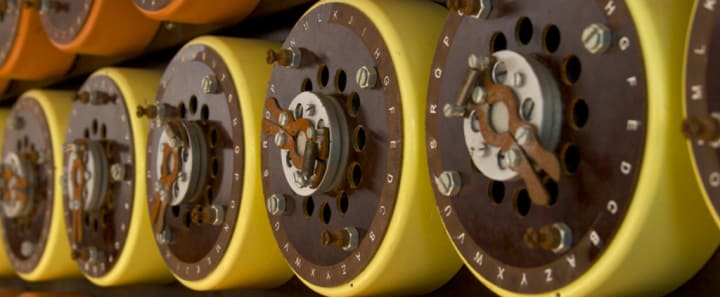
In the late 1940s, Turing held senior positions in the mathematics department and then the computing laboratory at the University of Manchester. In his 1950 paper, "Computing Machinery and Intelligence," he addressed the topic of artificial intelligence for the first time and proposed the "Turing Test," an experiment to create an intelligence design standard for the tech industry. The test has had a considerable impact on artificial intelligence issues during the last several decades.
Homosexuality

In the early 1950s, homosexuality was illegal in the United Kingdom; thus, Turing was charged with gross indecency after admitting to having a sexual relationship with the offender, 19-year-old Arnold Murray, when police were summoned to his residence after a break-in in January 1952. Turing was forced to choose between temporary probation and libido treatment after his arrest. He selected the former and was soon impotent after a year of artificial castration with injections of a synthetic oestrogen hormone. Turing's security clearance was revoked due to his conviction, and he was prevented from continuing his cryptography work at the GCCS, which had become the GCHQ in 1946.
His Death
On June 7, 1954, Turing passed away. The cause of death was determined to be cyanide poisoning after a postmortem examination. The remains of an apple were discovered near to the body, but there were no apple components in his stomach. "Four ounces of fluid that smelled strongly of bitter almonds, as does a solution of cyanide," according to the autopsy report. There was also a faint odour of bitter almonds in the essential organs. The cause of death was determined to be asphyxia due to cyanide poisoning, and the death was deemed a suicide. Jack Copeland, a philosophy professor and Turing scholar, stated in a June 2012 BBC article that Turing's death may have been an accident: Turing had cyanide in his house for chemical experiments he conducted in his spare room, but the apple was never tested. Nothing in the reports of Turing's final days suggested he was suicidal.
Awards
Turing received the Order of the British Empire for his efforts shortly after World War II ended. Turing biographer Andrew Hodges unveiled an official English Heritage blue plaque at his childhood home on what would have been his 86th birthday. Turing's life-size statue was unveiled in June 2007 at Bletchley Park in Buckinghamshire, England. On the 50th anniversary of Turing's death, a bronze statue of him was unveiled at the University of Surrey on October 28, 2004. Turing was also rated the second most important alumnus in Princeton University's history, behind James Madison, according to the Princeton University Alumni Weekly.
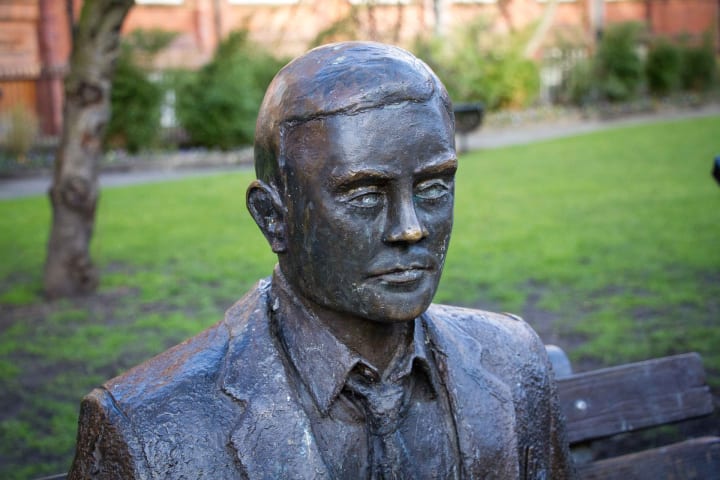
Turing was also recognised in various ways, especially in Manchester, where he worked near the end of his life. "The reality is that everyone who taps at a keyboard, opens a spreadsheet or a word-processing application, is working on an iteration of a Turing computer," Time magazine said in 1999 when naming him one of the "100 Most Important People of the 20th Century." In 2002, Turing was placed 21st in a BBC nationwide survey of the "100 Greatest Britons." Turing has been chiefly recognised for his contributions to computer science, with many hailing him as the field's "creator."
Royal Pardon
On September 10, 2009, then-Prime Minister Gordon Brown issued a statement on behalf of the British government, apologising to Turing for charging him as a homosexual, in response to a petition organised by John Graham-Cumming.
"This recognition of Alan's status as one of Britain's most famous victims of homophobia is another step towards equality and long overdue. But even more than that, Alan deserves recognition for his contribution to humankind," Brown stated. "It is thanks to men and women who were totally committed to fighting fascism, people like Alan Turing, that the horrors of the Holocaust and of total war are part of Europe's history and not Europe's present. So on behalf of the British government, and all those who live freely thanks to Alan's work I am very proud to say: we're sorry, you deserved so much better."
Almost 60 years after Turing committed suicide, Queen Elizabeth II granted him a rare royal pardon in 2013. On October 20, 2016, the British government announced "Turing's Law," which will grant posthumous pardons to thousands of gay and bisexual persons who were convicted of homosexual actions when they were illegal. The bill also automatically pardons live people who were "convicted of historical sexual offences who would be innocent of any crime today," according to Justice Minister Sam Gyimah's statement.
The new £50 Note
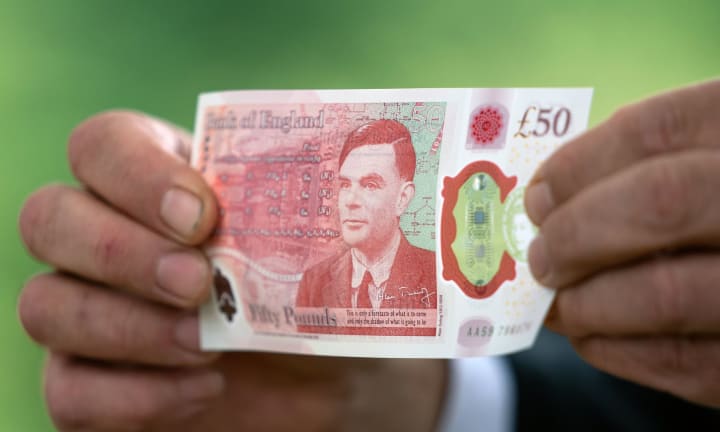
The Bank of England stated in July 2019 that Turing would be featured on the UK's new £50 note, alongside photos of his work. The renowned scientist was picked from approximately 1,000 applicants, including theoretical physicist Stephen Hawking and mathematician Ada Lovelace, who the general people nominated. Despite the brilliance of all the nominated scientists, I am glad it was Turing that will be the face of the new £50 note - and the first homosexual person on any British currency in history.
During my time at university, I remember walking through Manchester and passing the Turing statue in Sackville Park. I don't know why, but I couldn't help smiling as my eyes caught the statues gaze. Turing was a mastermind, one that comes once in a generation, and knowing he has been neglected from his country, he helped to save, makes me sick. How much brilliance have we lost due to our bigotry? Enough is enough. I will forever hold a pristine £50 Turing note in my safe; It is memorabilia work keeping and is worth way more than its initial value. Turing, to the world, was priceless.
____________________________________________________
Thank you for taking the time to read our blog! If you enjoyed the content or learnt something along the way, please consider leaving a '<3' below! We would appreciate it if you could leave a small tip to support us in our mission to provide free, weekly infotainment for you to enjoy!
If you wish to begin your Vocal journey, join the Vocal+ programme to get more for your work! Earn more per view, withdraw your profits quicker, and gain access to Vocal+ Challenges with prizes to be won every week!
Use the link below and begin your Blogging career today!
https://vocal.media/vocal-plus?via=dawid
You're the reason we can continue doing what we love and making all of this possible. We are forever grateful for your support!
About the Creator
People! Just say Something!
Quirky Writing created by Artistic Creativity and the power of AI with the goal of learning something new every day!
Facebook: https://www.facebook.com/PeopleJSS
Twitter: https://twitter.com/PeopleJSS
Enjoyed the story? Support the Creator.
Subscribe for free to receive all their stories in your feed. You could also pledge your support or give them a one-off tip, letting them know you appreciate their work.






Comments
There are no comments for this story
Be the first to respond and start the conversation.